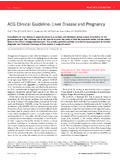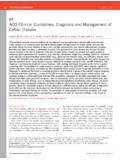Transcription of Diseases and Conditions Liver disease - Case …
1 Diseases and ConditionsLiver diseaseThe Liver is an organ about the size of a football that sits just under your rib cage on theright side of your abdomen. The Liver is essential for digesting food and ridding your bodyof toxic disease can be inherited (genetic) or caused by a variety of factors that damage theliver, such as viruses and alcohol use. Obesity is also associated with Liver damage. Overtime, damage to the Liver results in scarring (cirrhosis), which can lead to Liver failure, alife-threatening and symptoms of Liver disease include:Skin and eyes that appear yellowish (jaundice)Abdominal pain and swellingSwelling in the legs and anklesItchy skinDark urine colorPale stool color, or bloody or tar-colored stoolChronic fatigueNausea or vomitingLoss of appetiteTendency to bruise easilyWhen to see a doctorMake an appointment with your doctor if you have any persistent signs or symptoms thatworry you.
2 Seek immediate medical attention if you have abdominal pain that is sosevere that you can't stay Mayo Clinic StaffLiver disease has many and viruses can infect the Liver , causing inflammation and that reduces liverfunction. The viruses that cause Liver damage can be spread through blood or semen,contaminated food or water, or close contact with a person who is infected. The mostcommon types of Liver infection are hepatitis viruses, including:Hepatitis AHepatitis BHepatitis CImmune system abnormalityDiseases in which your immune system attacks certain parts of your body (autoimmune)can affect your Liver . Examples of autoimmune Liver Diseases include:Autoimmune hepatitisPrimary biliary cirrhosisPrimary sclerosing cholangitisGeneticsAn abnormal gene inherited from one or both of your parents can cause varioussubstances to build up in your Liver , resulting in Liver damage.
3 Genetic Liver diseasesinclude:HemochromatosisHyperoxal uria and oxalosisWilson's diseaseCancer and other growthsExamples include: Liver cancerBile duct cancerLiver adenomaOtherAdditional, common causes of Liver disease include:Chronic alcohol abuseFat accumulating in the Liver (nonalcoholic fatty Liver disease )Factors that may increase your risk of Liver disease include:Heavy alcohol useInjecting drugs using shared needlesTattoos or body piercingsBlood transfusion before 1992 Exposure to other people's blood and body fluidsUnprotected sexExposure to certain chemicals or toxinsDiabetesObesityHigh levels of triglycerides in your bloodComplications of Liver disease vary, depending on the cause of your Liver Liver disease may progress to Liver failure, a life-threatening may be referred to a doctor who specializes in the Liver (hepatologist).
4 What you can doBe aware of any pre-appointment restrictions, such as not eating solid food on theday before your down your symptoms, including any that may seem unrelated to the reasonwhy you scheduled the a list of all your medications, vitamins and down your key medical information, including other down key personal information, including any recent changes or stressors inyour a relative or friend to accompany you, to help you remember what the down questions to ask your to ask your doctorWhat's the most likely cause of my symptoms?What kinds of tests do I need? Do these tests require any special preparation?Are my Liver problems likely temporary or chronic?What treatments are available?Should I stop taking certain medications or supplements?
5 Should I avoid alcohol?I have other health Conditions . How can I best manage these Conditions together?In addition to the questions that you've prepared to ask your doctor, don't hesitate to askother questions during your to expect from your doctorYour doctor is likely to ask you a number of questions. Being ready to answer them maymake time to go over points you want to spend more time on. You may be asked:When did you first begin experiencing symptoms, and how severe are they? Haveyour symptoms been continuous or occasional?What, if anything, seems to improve or worsen your symptoms?Have you had a fever?Have you ever had your skin or eyes turn yellow?What medications and supplements do you take?How many days of the week do you drink alcohol? Do you have any tattoos?
6 Does your job involve exposure to chemicals, blood or body fluids?Have you ever had a blood transfusion?Have you been told that you have had Liver problems before?Has anyone in your family ever been diagnosed with Liver disease ?Finding the cause and extent of Liver damage is important in guiding doctor is likely to start with a health history and thorough physical doctor may then recommend:Blood tests. A group of blood tests called Liver function tests can be used todiagnose Liver disease . Other blood tests can be done to look for specific liverproblems or genetic tests. CT scan, MRI and ultrasound can show Liver analysis. Removing a tissue sample (biopsy) from your Liver may helpdiagnose Liver disease . Liver biopsy is most often done using a long needle insertedthrough the skin to extract a tissue sample.
7 It is then analyzed in a for Liver disease depends on your diagnosis. Some Liver problems can betreated with lifestyle modifications, such as stopping alcohol use or losing weight,typically as part of a medical program that includes careful monitoring of Liver Liver problems may be treated with medications or may require for Liver disease that causes Liver failure may ultimately require a alternative medicine therapies have been proved to treat Liver disease . Some studies notably of Chinese herbal medicine treatments for clearance of hepatitis B virus have indicated benefits. But the quality of these research studies has been the other hand, some herbal supplements used as alternative medicine treatmentscan harm your Liver . More than a thousand medications and herbal products have beenassociated with Liver damage, including:Jin bu huanMa-huangGermanderValerianMistletoeSk ullcapChaparralComfreyKavaPennyroyal oilTo protect your Liver , it's important to talk to your doctor about the potential risks beforeyou take any complementary or alternative prevent Liver disease :Drink alcohol in moderation.
8 For healthy adults, that means up to one drink a dayfor women of all ages and men older than age 65, and up to two drinks a day for menage 65 and younger. Heavy or high-risk drinking is defined as more than three drinkson any day or more than seven drinks a week for women and for men older than age65, and more than four drinks on any day or more than 14 drinks a week for men age65 and risky behavior. Get help if you use illicit intravenous drugs, and don't shareneedles used to inject drugs. Use a condom during sex. If you choose to have tattoosor body piercings, be picky about cleanliness and safety when selecting a vaccinated. If you're at increased risk of contracting hepatitis or if you've alreadybeen infected with any form of the hepatitis virus, talk to your doctor about getting thehepatitis A and hepatitis B medications wisely.
9 Take prescription and nonprescription drugs only whenneeded and only in recommended doses. Don't mix medications and alcohol. Talk toyour doctor before mixing herbal supplements or prescription or contact with other people's blood and body fluids. Hepatitis viruses can bespread by accidental needle sticks or improper cleanup of blood or body care with aerosol sprays. Make sure the room is ventilated, and wear a maskwhen spraying insecticides, fungicides, paint and other toxic chemicals. Always followthe manufacturer's your skin. When using insecticides and other toxic chemicals, wear gloves,long sleeves, a hat and a a healthy weight. Obesity can cause nonalcoholic fatty Liver MP, et al. Hepatomegaly: Differential diagnosis and evaluation. March 25, L, et al.
10 Goldman's Cecil Medicine. 24th ed. Philadelphia, Pa.: Saunders Elsevier; Accessed March 25, When should cirrhosis be suspected? Rochester, Minn.: Mayo Foundation for MedicalEducation and Research; LS. Approach to the patient with abnormal Liver biochemical and function Accessed March 25, TA, et al. Evaluation of abnormal Liver tests. Medical Clinics of North America. 2014;98 What is magnetic resonance elastography (MRE) and what are the indications for an MREexamination? Rochester, Minn.: Mayo Foundation for Medical Education and Research; M, et al. Sleisenger & Fordtran's Gastrointestinal and Liver disease : Pathophysiology, Diagnosis,Management. 9th ed. Philadelphia, Pa.: Saunders Elsevier; 2010. AccessedMarch 25, AM. Hepatotoxicity due to herbal medications and dietary Accessed March 25, hepatitis: A through E and beyond.






